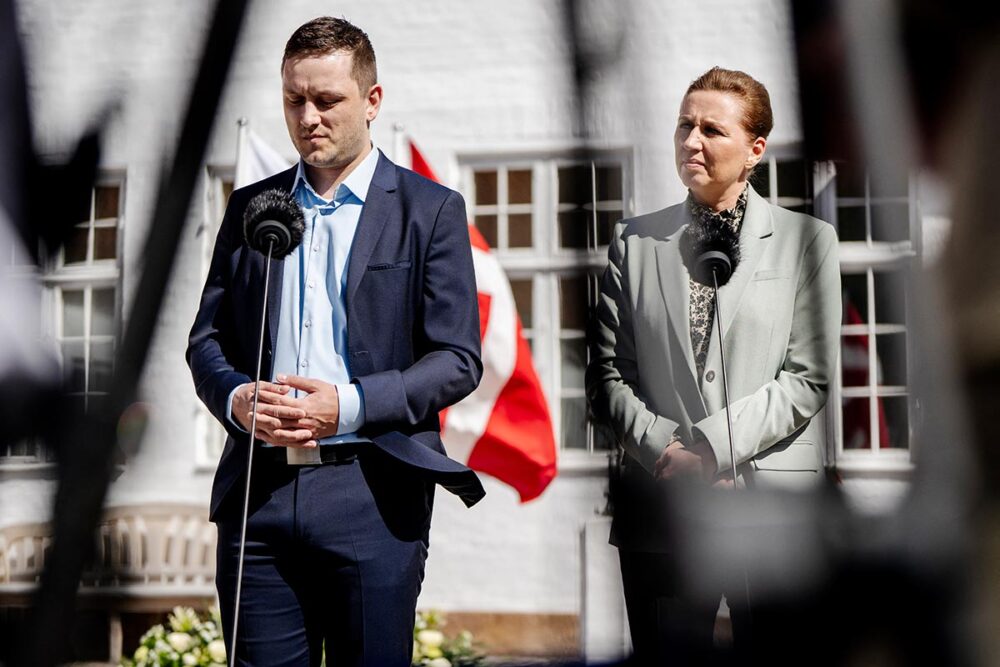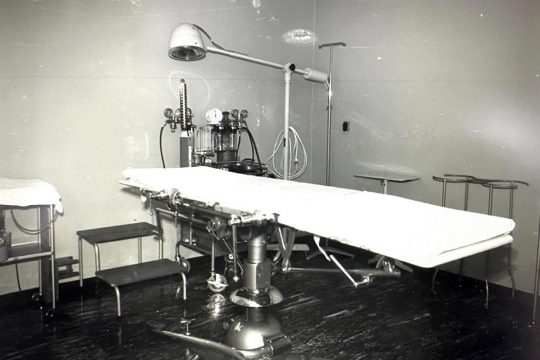On August 27 the Danish government and Naalakkersuisut – the Greenland Self-Government – surprisingly sent out a press release issuing an official apology to all Greenlandic women who have been victims of systematic discrimination during the birth control campaign that took place in Greenland from 1965 to 1991.
The campaign was a Danish state sponsored anticonception campaign aiming at decreasing the birth rate in Greenland. In 2017 one of the victims, Naja Lyberth, began to speak publicly about her experience and in 2022, an investigative podcast “Spiralkampagnen” (“The IntraUterine contraceptive Device (IUD) campaign”) released by the Danish Broadcasting Corporation revealed that young Greenlandic girls under the age of 15 were told to go to the doctor where they had IUDs inserted without informed consent – neither from themselves, and in many cases nor their parents – and that IUDs had been inserted in women giving birth without their knowledge. The campaign led to rapid and significant drop in birth rates. The disclosure by the media sent shock waves through the Greenlandic society and aggravated the already strained relations between Greenland and Denmark.
In 2023, the governments of Denmark and Greenland agreed on a historical investigation into the IUD campaign and other methods of birth control used in Greenland in the period 1965-1991 (the Greenlandic Home Rule Government took over the Health care system from Denmark in 1992). Meanwhile, both women and Greenlandic politicians have called for a formal apology and reparations to the women as well as to the Greenlandic populations as such, and in March 2024 a group of 143 Greenlandic women sued the Danish state claiming individual compensation of 300.000 Danish crowns each (about 40,000 euros).
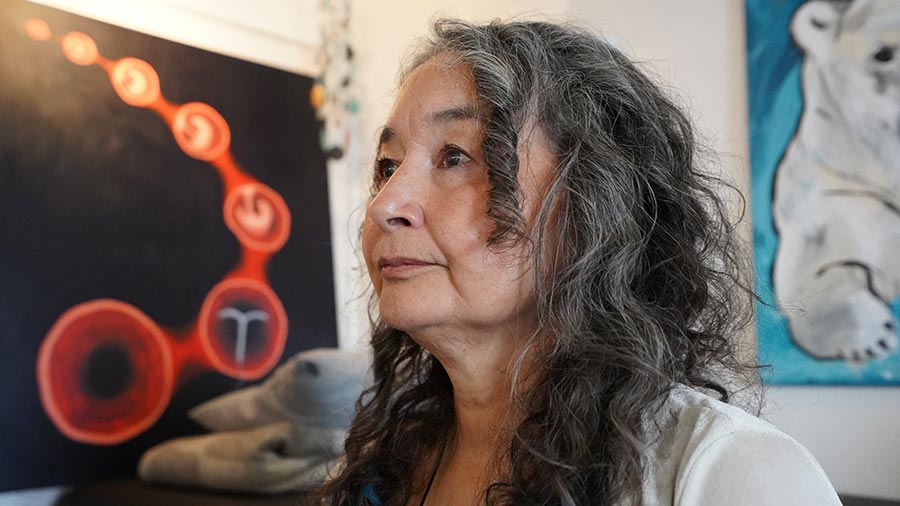
“It hurt a lot, and I started to bleed”
The investigation of the use of birth control in Greenland was published on September 9, 2025. While not providing conclusive numbers, the report documents that by the end of 1970, 4.070 Greenlandic women had an IUD. That amounts to circa every second Greenlandic born woman. After 1970 the method of statistics changed, and the total number of IUDs inserted remains unknown.
The report consists of three parts. Part 1 describes the historical context for the use of birth control in Greenland from the 1950s. Part 2 describes the legal basis of the treatment of patients in the medical system at the time, while part 3 describes the implementation of birth control in Greenland mainly based on testimonies from 354 women. It is this part that is especially grim reading. Girls down to the age of 12 were given IUDs. Many of these had not had their sexual debut. Nevertheless, the largest size IUD (Lippe's loop) was chosen in some cases. Some women report that they as school girls had been taken to the hospital and had an IUD inserted without further explanation. As a woman aged 14 at the time explains:
“While we were at school, someone came in and said: ‘Girls, you need to be examined.’ We were taken to the hospital. We didn’t know what was going to happen. When we got to the doctor, they said: ‘Take off your clothes. We’re going to examine you down there.’ I had never been touched down there. It was very uncomfortable. It hurt a lot, and I started to bleed.”
The report shows that the same practice has also been used against Greenlandic girls at boarding schools in Denmark.
Some of the women suffered immediate consequences such as abdominal pain, heavy bleeding, discomfort during intercourse, and infections. In some cases it even led to chronic infertility.
The report could not establish the percentage of women who had IUDs inserted without consent. But amongst the 354 women who have testified, informed consent could only be documented in 47 cases. The younger girls had simply been told that they were to be examined and had not received prior information as to why, nor been given the chance to say no. Others didn’t even know that they had an IUD as it had been inserted after child birth or other gynecological procedures. In some instances the women had later asked to have the IUD removed, but been refused help.
The investigation also includes the use of injections with Depro-Provera as birth control. By 1980 the product was used in Greenland 30 times as much as in Denmark.
The state is responsible
It was already clear from the journalistic accounts of the campaign that this is simultaneously a case of women who have been deprived of basic rights to the control of their own bodies, and also a case of a campaign conducted in a colonial setting characterised by a pattern of domination and of cultural differences that have made it even harder for the women to object. Moreover, the campaign was a state sponsored plan devised in order to lower the birth rate amongst others to reduce economic costs.
The investigation team was not mandated to determine whether or not this is a case of human rights violations, a breach of collective rights or a genocide – something that has been criticised by, amongst others, the Inuit Organization ICC, the Council for Human Rights (in Denmark and Greenland) and the Danish Human Rights Institute.
In August 2024, Naalakkersuisut thus initiated its own investigation into these aspects of the IUD campaign. The report is expected this winter. It should look into the allegations set forth by several Greenlandic politicians, including former Prime Minister Muté B. Egede, who in December 2024 during a TV interview on Danish television called the IUD campaign a genocide.
While the report does not provide any legal conclusions, it does establish that the State of Denmark had the overall responsibility of the campaign and may have neglected its duty of supervision in compliance with the European Charter of Human Rights, and its responsibility towards vulnerable persons, i.e. students at boarding schools and of a different cultural background.
The Trump factor
The apology sent out in August by Danish Prime Minister Mette Frederiksen and Greenlandic Prime Minister Jens-Frederik Nielsen was not surprising in itself. Frederiksen has apologized in a previous case of human rights violations in Greenland. She had also announced that she would apologize in the IUD case once the report was published. But the apology to IUD victims came 13 days before the report was released and without a prior letter, or even notification, had been sent to the women – a format that Frederiksen had used in her last apology to Greenland.
The pressure on Danish-Greenlandic relations has grown enormously as the newly elected US President Donald Trump in December 2024 once again offered to buy or take over Greenland from Denmark. And it was on the same day the apology was issued late August that the Danish intelligence confirmed to national media that US agents have infiltrated Greenland to influence people’s position on an American annexation of the territory.
This timing made some speculate if the early apology came as a consequence of the news story on the US propaganda operation in Greenland. Whether this was related or not is unknown. However, the US ambition to win over Greenland to the US has been obvious to anyone in Greenland since January 7, when Donald Trump Jr landed in Nuuk, and the story of US attempts of infiltration had already circulated in both Danish and Greenlandic media since the early spring and did not in itself reveal anything new. In neither case did the Danish Prime Minister decide to apologise despite constant pressure from the Greenlandic Government. This indicates that the timing of the apology was not directly a result of the US campaign. It more likely came about after the Prime Minister had read the conclusions of the report, just before it went into print.
The Greenlandic apology
It also came as a surprise to many that Greenlandic Prime Minister Nielsen also apologized on August 27.
Greenland, a former Danish colony, was in 1953 integrated into the Kingdom of Denmark, administered by the Ministry of Greenland under the Danish government. In 1979, Greenland gained Home Rule, and in 2009, Self-Government. The authority of the Health department was overtaken by the Greenlandic administration in January 1992, and the Greenlandic Prime Minister found it appropriate to apologise to the (much smaller) number of women who had IUDs inserted without prior consent after 1992: “On behalf of Naalakkersuisut [the government of Greenland], I would like to apologise for the harm and abuse that may have been inflicted on several women after we took over responsibility for our healthcare system. I apologize to those of you who have been subjected to and live with the consequences of interventions that you did not ask for or decide.”
The Greenlandic apology has been criticised by some commentators, who argue that Greenland ought not to apologise as the basic patterns of colonial domination have continued even after Home Rule and Self-Government have been introduced.
This is the third Greenlandic apology to their own people. In 1999, Danish prime minister Poul Nyrup Rasmussen issued a statement of apology to the population of Qaanaaq for their deportation in 1953 when the American Thule Air Base was built on their lands. In this case Greenlandic Prime Minister Jonathan Motzfeldt was a co-signatory of the apology. In 2020 and again at a formal ceremony in 2022 (postponed due to Covid), Prime Minister Frederiksen apologized to the 22 victims often referred to as ‘Experiment Children’ in a case from the 1950s where 22 Greenlandic children were taken from their families as part of a social experiment aimed at making them a new Danish speaking Greenlandic elite. In the case of the Experiment Children, some of the victims had also asked for an apology from the Naalakkersuisut as the successor of the then Greenland National Council for not protesting or hindering the experiment taking place. The then Greenlandic Prime Minister Muté B. Egede declined but she did apologize for the fact that Naalakkersuisut had not made the Danish Prime Minister apologize earlier.
Tomorrow’s apology ceremony
On September 24, a formal apology ceremony will take place in Nuuk, the capital of Greenland. The big question on everybody's mind at this point is whether or not the Danish Prime Minister will also announce a reparations scheme to the victims of the IUD campaign. The Greenlandic Prime Minister has already promised compensation to women harmed by the birth control campaign after 1992, which puts pressure on Denmark to follow suit. Meanwhile, many of the women behind the suit have stated that they hope to receive direct compensation and avoid going all the way through the court system as this can be retraumatising in itself.
The Danish Prime Minister has first refused to comment on whether Denmark is obliged to compensate the women. She only said she will not interfere with the ongoing lawsuit. “We cannot change what has happened,” she declared, “but we can take responsibility. Therefore, on behalf of Denmark, I would like to say: Sorry. Sorry to the girls and women who have been subjected to systematic discrimination. Because they are Greenlanders. Because they have experienced both physical and psychological harm. Because they were let down.” On September 22, she suddenly the creation of a compensation fund for victims of the IUD and other state discrimination. The details are still unclear but it is called a “Reconciliation Fund”.
She also extended the apology to “other dark chapters that deal with systematic discrimination against Greenlanders” and “other failures for which Denmark is responsible, where Greenlanders have been systematically treated differently and inferiorly than other citizens of the kingdom.” Such additional and broad apology may indicate that the Prime Minister will use the occasion to announce new measures of reconciliation.
Towards a truth and reconciliation commission?
In 2022, the governments of Denmark and Greenland agreed on yet another historical investigation into all major political decisions and their consequences to the Greenlanders from WWII until today. 45 million DKK (6 million euros) was allocated to this inquiry, and in February 2024 the two research leaders were appointed. But only this September did they announce that their work had now finally begun. The reasons behind the delay are somewhat unclear. However, last May Naalakkersuisut stated that they were deliberating on altering the mandate of the historical inquiry.
All other Scandinavian states are conducting or have recently concluded truth and reconciliation processes looking into historical injustices that have some similarities to the injustices committed in Greenland. Whether the governments of Greenland and Denmark will use the occasion to announce that the broad historical inquiry will be transformed into a truth and reconciliation commission remains to be seen.
The IUD campaign timeline
1950: The report from the Greenland Commission (G50) structures the modernisation process of Greenland with an ambition of formal equality between Greenland and Denmark and improved living conditions in Greenland.
1953: Greenland is integrated into the Kingdom of Denmark after pressure from the UN to decolonize.
1960: The chief health officer in Greenland (landslægen) problematises the increase in birth rate.
1964: Publication of the G60 report on the progress of the policy to modernize Greenland. The advisory economist is not concerned about the population increase, but the G60 report recommends a birth control campaign due to an increase in teenage pregnancies out of wedlock. The first IUD is used in Greenland. Several doctors, including the chief medical officer and doctor Rosen from the Danish organisation Mother’s Aid, play leading roles in propagating IUDs in Greenland.
1965: The Greenland Council initiates a birth control campaign in Greenland. Doctor Rosen tests the use of IUDs on a group of Greenlandic women.
1969/1970: A report from the national health officer shows a decrease in the birth rate due to the IUD. Authorities seemingly loose interest in the birth rate.
1970: Introduction of the birth control Depo-Provera in Greenland.
1992: The Greenlandic Home Rule overtakes the administration of the health department.
2017: One of the victims, Naja Lyberth, starts to search for other victims from the IUD campaign, using her social media platform.
2019: The Greenlandic newspaper AG reports on the IUD campaign and among others interviews Naja Lyberth about her personal experiences.
2021: The Greenlandic magazine Arnanut publishes another article on the IUD campaign.
2022: The podcast “The IUD campaign” is released on the Danish Brodcasting Corperation (DR).
2023: The Danish-Greenlandic investigation in anticonception is initiated.
2024: A group of 143 Greenlandic women sue Denmark for forced contraception.
2025: Denmark and Greenland issues formal apologies for the IUD campaign.
(Source: “Uvildig udredning af antikonceptionspraksis i Kalaallit Nunaat i perioden 1960-1991”, (“An impartial study of contraception practices in Kalaallit Nunaat in the period 1960-1991”)
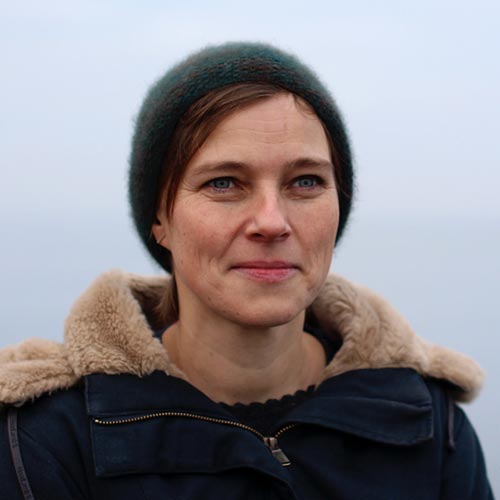
Martine Lind Krebs is a journalist and an anthropologist, specialising in Greenland, where she grew up. Former editor of the radio and online news on KNR, the Greenlandic Broadcasting Corporation, and the Greenlandic magazine Arnanut. With Astrid Nonbo Andersen she is the author of the book “Monumentet” (Gads Forlag, to be published November 2025) dealing with Danish ideas and representations of Greenland in the 20th Century.
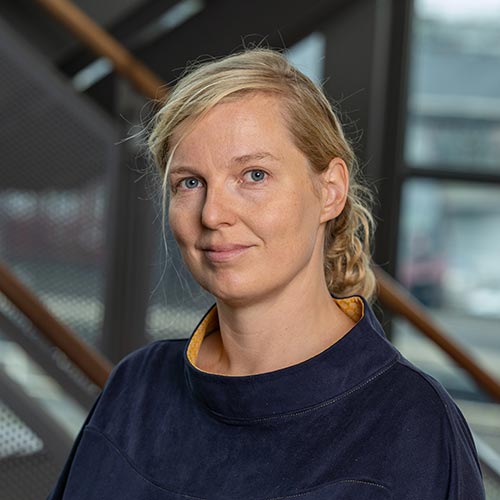
Astrid Nonbo Andersen, Senior Researcher at the Danish Institute for International Studies. Her principal area of research is truth and reconciliation processes, claims for reparation and restitution, and a particular focus on colonialism in the Nordic countries, Denmark and its former colonies.


